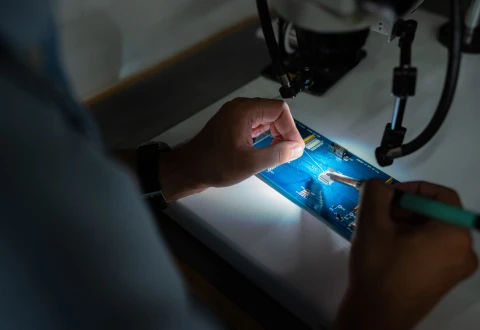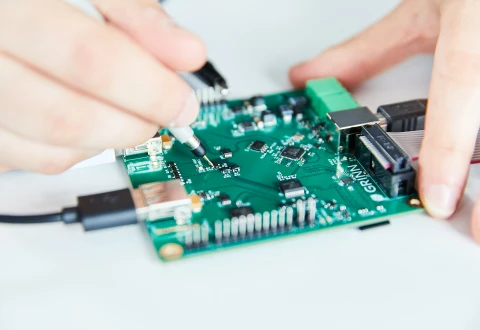Transportation and logistics play a vital role in global economies, facilitating the movement of people, goods, and products across various locations. As we look ahead, the demand for transportation services is expected to skyrocket, in this context, the transportation sector faces significant challenges that need to be addressed to ensure smooth operations and sustainable growth.
To overcome these challenges, industry leaders are turning to the Internet of Things (IoT) as a game-changing solution. By incorporating IoT technologies such as sensors and onboard diagnostics into traditional trucks and vehicles, transportation companies can gain real-time visibility, agility, and sustainability in their operations.
But what exactly is the role of IoT in the transportation and logistics sector, and how can it be optimally utilized? Let's explore!
Unlocking the Power of IoT in Transportation
Let's delve into some key areas where IoT is making a significant difference in the transportation and logistics sector.
Efficient Trucking and Trailer Operations
Accurate weighing of trucks carrying goods is crucial for transportation companies. IoT-enabled weighing systems equipped with smart sensors provide real-time weight measurements, ensuring optimal payload, reducing fines, eliminating guesswork, and improving return on investment (ROI).
Moreover, IoT-based vehicle tracking and management systems offer real-time data on routes, driver activities, vehicle movements, and fuel consumption. This valuable information empowers companies to optimize their operations, make informed decisions, and boost productivity and profitability.
Ensuring Cargo Safety with Temperature Monitoring
Maintaining optimal temperature conditions for cargo is essential to ensure driver, vehicle, and goods safety. IoT-enabled temperature and humidity monitoring systems allow transportation companies to detect any deviations in cargo temperature. Real-time, accurate data delivered through mobile and web applications enhances transparency and guarantees the safety of the transported goods.
Addressing Logistics Challenges with IoT
Logistics companies face numerous challenges in managing multiple activities simultaneously, which can impact their processes and customer service. IoT technology provides effective solutions in the following areas:
Theft Detection and Enhanced Security. By implementing IoT-enabled systems in warehouses, companies can monitor and track the movement of people, accurately record entries and exits, and remotely lock warehouse doors. This not only automates warehouse operations but also improves security and reduces the risk of theft.
Employee Safety and Predictive Maintenance. IoT devices installed on machines can predict potential malfunctions or accidents, ensuring employee safety and reducing maintenance costs. Real-time monitoring and data analysis allow for proactive maintenance, preventing breakdowns and ensuring efficient operations.
Streamlined Product Tracking. IoT tracking systems enable logistics managers to track products from the warehouse to the customer. This transparency reduces the workload on staff, increases customer satisfaction, and facilitates efficient inventory management.
Advanced Analytics for Business Managers. IoT systems equipped with advanced analytics enable logistics managers to handle multiple activities in real-time. From inventory management to delivery monitoring and staff performance evaluation, IoT-powered analytics simplify operations and drive efficiency.
Tackling Industry Challenges with IoT
Shortage of Truck Drivers. The high demands of truck driving often result in a scarcity of drivers. IoT technologies, including autonomous vehicles, can optimize logistics operations, making transportation more efficient and convenient while addressing the shortage of drivers.
Unpredictability of Freight. With changing demands and increasing freight volumes, managing logistics operations becomes more challenging. IoT enables logistics managers to plan better, optimize processes, and make real-time routing decisions based on a combination of data sources and sensors.
Tracking and Monitoring Regulatory Compliance. Compliance with regulations is crucial for transportation companies. IoT technologies can automate compliance monitoring, ensuring adherence to regulations and avoiding penalties.
Embracing a Connected Future
The Internet of Things is revolutionizing the transportation and logistics industry, offering unprecedented opportunities to enhance operations, improve efficiency, and deliver exceptional customer service. By leveraging IoT technologies, transportation and logistics companies can unlock their full potential, overcome challenges, and stay ahead in a rapidly evolving world.
As we move forward into a connected future, it is imperative for industry leaders to embrace the IoT revolution, invest in innovative solutions, and adapt to the changing landscape. By doing so, they can build a sustainable and thriving transportation and logistics sector that meets the growing demands of a connected world.
Imagine being part of a transformative movement that shapes the future of transportation. By harnessing the power of IoT devices, we have the opportunity to revolutionize how we move and connect in our increasingly interconnected world. Together with Grinn we can unlock limitless possibilities and build new revoulutionary IoT product. Whether it's designing smart sensors that enhance road safety, developing intelligent infrastructure for efficient traffic management, or creating groundbreaking solutions for autonomous vehicles, your ideas and collaboration can make a profound impact. Join forces with Grinn and become a driving force behind the next generation of transportation technology, paving the way for a safer, greener, and more connected future.
 Kateryna Kozakova
Kateryna Kozakova






















